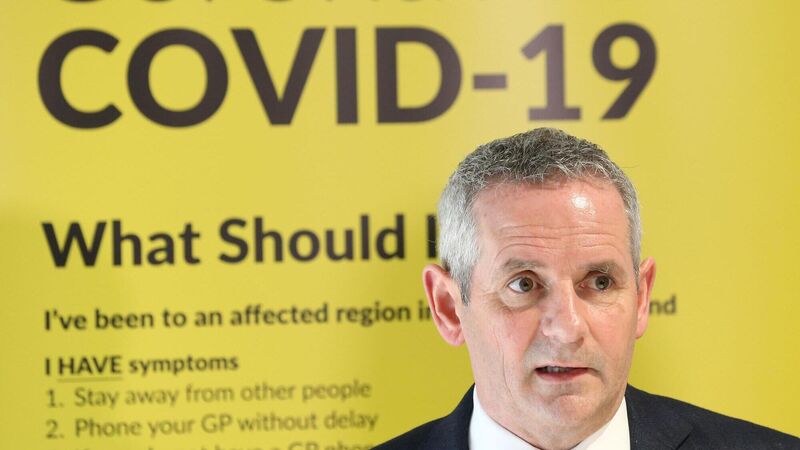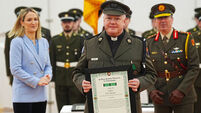HSE chief: We have two weeks to turn Covid-19 crisis around

HSE Chief Executive, Paul Redi: "ICU beds, testing and tracing, they are all our second lines of defence. Our first line of defence against this virus is to shift the debate to us as individuals." Picture: Sasko Lazatov/Photocall Ireland
Two of the country's most senior health officials have warned the public to take a "radical look" at their behaviour as the country reaches a "crux" point in Covid-19.
HSE Chief Executive Paul Reid said he believes the country has been shocked and now realises the current virus spread is "quite serious".
He added that the HSE broke their testing record on Thursday: "We've had over 19,500 tests completed yesterday, which is a record from any time. People need to just take a radical look at everything we're doing. Just don't meet people we don't need to meet in the next two weeks. It's that simple.
"Don't meet people in closed settings, as much as possible, and with everyone doing the right thing, we can make a big difference."
He said the biggest impact, whether the country is at level two, three, four or five, is what people do.
Mr Reid denied contradicting Nphet last week when it said hospitals were on the verge of being overwhelmed adding there hasn't been "any disagreement whatsoever".
He says that doctors are concerned about keeping other non-Covid services open as long as possible.
"We're all on the same page that our hospital system is challenged and they are deeply concerned about the impact of a lockdown because we're still dealing with some of the impacts of a complete lockdown in society," he told .
171 people are currently in hospital, 27 are in ICU, which Mr Reid called a "trend upward." There are 41 ICU beds available.
"We can avoid Level 5. What we don't want to happen is - every one of those ICU beds is a real person and it's one of our family your family or friends," he added.
"So let's move the shift of the base worry from more ICU beds to what we can do individually."
He said the country has two weeks to turn the situation around.
Mr Reid refuted suggestions the HSE has wasted time in preparing for a second surge saying some teams have "not stopped since January".
Meanwhile Dr Colm Henry, a member of Nphet and the chief clinical officer with the HSE said the nation is at a crux point in virus spread.
"To be absolutely honest we're very worried, we are seeing escalating numbers of cases now over 40,000 confirmed cases since our first case," Dr Henry said.
"These numbers are rising exponentially, the two-week instance is now 116, that was two in July.
"What I would say is that we are at a crux now.
"(There have been) 10 outbreaks the past week in nursing homes, with 68 cases, but there's no sense that the virus is any less virulent than it was back in March in April."
On ICU beds, Dr Henry said the historic lack of ICU beds has put the system under pressure.
"We have funding (for beds), it's a question of recruiting people, intensive care just isn't a bed, it's a system of care involving trained experts of nursing doctors and you can imagine how many nurses we need for one 24 hour shift of a critically ill patient, and beyond that, we want to make up those numbers that we really should have demanded in past years, going up to 432 at the end of 2022," he said.
"We clearly have far too low-levels of ICU in this country, 256 is the baseline. We're in a much more difficult position in the sense than we were in March in April.
"In March in April, we cleared the decks. Now we have to catch up. Deliver cancer care, deliver the other care that was suspended. It's a much more difficult task."





